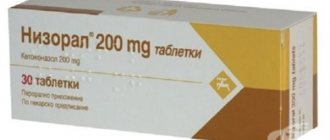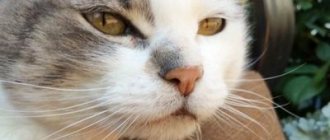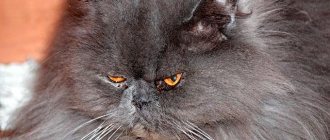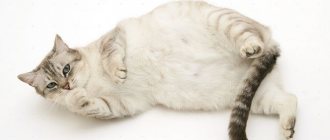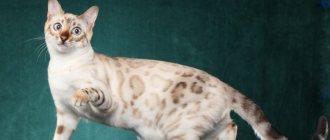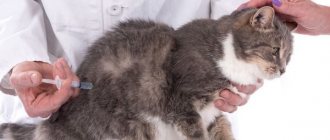Many domestic cats leak saliva from their mouths, which causes great concern among owners. Often on the Internet, pet owners are interested in why their cat is drooling. It is worth knowing that excessive drooling is caused by excess saliva. It appears as a result of the development of a specific disease called hypersalivation. It is also called ptyalism. The essence of the disease is increased secretion of saliva.
Thus, only a doctor can correctly answer the question of why a cat is drooling from its mouth. The causes of drooling are problems with the oral cavity, but sometimes they are a disorder of the central nervous system. Often, pets have an anatomical abnormality that leads to the flow of saliva.
- Calcivirosis and rhinotracheitis
Cats foam at the mouth. Reasons causing hypersalivation:
- infections (calicivirus, herpesvirus, rabies and others);
- stomatitis (inflammatory disease of the oral mucosa);
- gingivitis (inflammation of the gums);
- trauma to the mouth or tongue;
- caustic/caustic toxins (such as household cleaners and some indoor or outdoor plants);
- erosions and ulcers on the tongue and in the oral cavity;
- foreign bodies or tumors in the mouth and esophagus;
- neurological disorder of chewing or swallowing (paresis of the pharyngeal muscles due to botulism, etc.);
- nausea;
- certain metabolic disorders : hepatoencephalopathy - a disorder of the nervous system due to liver dysfunction;
- hyperthermia - increased temperature;
- uremia - the effect of toxins on the body due to impaired kidney function;
Signs of increased salivation
Many owners who are faced with this problem do not know what to do when the cat has clear drool in the corner of the mouth. In veterinary medicine, excessive salivation in a cat is called hypersalivation or ptyalism. The main signs of excessive salivation:
- The animal constantly swallows saliva.
- Regularly rubs its muzzle against furniture and corners of the room.
- The cat washes itself too often.
- The fur constantly bunches up into hanging icicles, and with regular grooming, it looks untidy.
- The tongue is sluggish and sometimes falls out of the mouth.
- Wet spots are visible on the kitten's favorite sleeping place.
Diagnosis of ptyalism in cats
As we've learned, there are many different causes of excessive salivation. Therefore, when visiting a veterinary clinic, be sure to give the doctor your pet's complete medical history to help identify potential causes. You should provide details about your cat's health, vaccinations, any medications (such as anthelmintics), possible exposure to toxins, and whether your cat has eaten any objects. You also need to describe the symptoms in detail.
After collecting anamnesis, the doctor conducts a thorough examination. Some patients sometimes require sedation (putting them into a state of light sleep without anesthesia).
Additional studies may include:
PCR diagnostics to confirm/exclude viral infection;
X-ray of the oral cavity to exclude dental problems and check for the presence of foreign objects in the digestive tract (only high-density radiopaque areas are detected);
Chest and abdominal radiographs to evaluate structures in the chest and abdomen;
Contrast radiography of the esophagus to identify/exclude a foreign body;
Complete blood test to assess immune status. It also helps determine the presence or absence of anemia (low levels of red blood cells in the blood);
Biochemical blood test (general profile and additional indicators) to assess kidney and liver function;
Urinalysis to assess kidney function.
Treatment of drooling in cats depending on the cause
Based on the problem that causes ptyalism, there are various treatment methods.
Poisoning
In most cases, if a toxic substance is ingested, it is necessary to induce vomiting.
But there are situations when it is strictly forbidden to induce vomiting (for example, in case of poisoning with caustic substances and petroleum products).
Veterinarians also perform gastric lavage with large amounts of water using a special tube-probe, which is passed through the esophagus to the stomach. To neutralize the poison in the stomach, the animal is washed with crushed activated carbon, and the sorbent is also given simply in crushed form, mixed with water. The introduction of antidotes - substances that neutralize poisons - is possible only if it is known exactly what caused the poisoning. Also, in case of poisoning, infusion therapy in a hospital setting is required to more quickly remove toxins from the body and the use of symptomatic medications.
Dental problems
If your cat is foaming at the mouth due to dental or oral disease, it may be due to abscesses. In this case, dental surgery will be needed. Single or multiple tooth extractions may also be required. Any wounds must be cleaned and an antibiotic may be prescribed to clear up the infection.
Neoplasms
If neoplasms are detected, you need to see an oncologist, and then, together with your doctor, decide on further treatment tactics. Surgical removal may be needed or chemotherapy, which can be used to target tumors at the microscopic level.
Kidney or liver diseases
In case of organ failure, it is necessary to conduct a full examination of the pet and prescribe treatment to reduce intoxication in the body.
Infusion therapy in a hospital setting under the supervision of physicians is often required. Sometimes a special diet is necessary. In this case, the veterinarian recommends a medicinal line of food.
Presence of a foreign body
To remove a foreign object that causes salivation, sedation is most often used, that is, the animal is put into a state of sleep. In some cases, endoscopic or abdominal surgery may be required.
Side effects of veterinary drugs
Some veterinary medications, such as anthelmintics, hepatoprotectors or hormonal agents, can cause increased salivation in some animals. As a rule, this symptom stops spontaneously and the pet does not require additional help. The only exceptions are cases of individual intolerance.
Pathology or part of the norm
Not in all situations, saliva flowing from a cat’s mouth is a symptom of a disease. It is quite natural that its excess can appear with appropriate stimulation, for example, with the sight or smell of a hungry animal’s favorite food.
There are also several other non-medical causes of drooling:
- Excessively affectionate, loving cats adore their owners so much that they cannot restrain the secretion of saliva from excess feelings. This only happens when the cat is caressed, especially when stroking the face and neck. This action stimulates the salivary glands to actively produce fluid. This manifestation is completely safe, and few animals suffer from it.
- Excessive saliva production under stress. Usually, to remove it, the cat licks itself, and the body helps by producing abundant saliva. Once the family pet calms down, everything stops.
- The same process begins with motion sickness. Cats don't like to travel. They quickly get seasick, scream on the way, or lie aloof in the carrier. To relieve attacks of nausea, the animal’s body strengthens the functioning of the glands.
- Some medications with an unpleasant taste can also “trigger” the process of salivation. If the animal is already familiar with this procedure, it may react by dripping fluid from its mouth. Most often, the reaction is caused by bitter anthelmintics.
- A visit to the veterinarian may also be a reason for a flood of drool if the cat has already been there and experienced painful procedures. The fear of foreboding discomfort triggers the secretion of saliva.
All these cases do not require treatment, as they are associated with a certain stimulation - physical or psychological.
The cat is drooling from his mouth: what to do at home, prognosis of the course of the disease
Our recommendations apply only to home care after visiting a veterinarian.
Hypersalivation in cats is a dangerous symptom, and you cannot help your pet yourself - it can only worsen the situation.
First of all, be sure to call your doctor and take any measures only on the basis of consultation.
During your visit to the clinic, all necessary treatment, medications, care and feeding regimen will be prescribed by your doctor. It is necessary to strictly follow the instructions and regularly contact the veterinarian.
The prognosis depends greatly on the disease that has been diagnosed.
If your cat is suspected of having rabies, it must be quarantined at the Animal Disease Control Station.
Dental problems are usually solved with surgery and cleaning of the mouth. Your doctor may prescribe special medications for home care.
Recovery from poisoning depends largely on how quickly the poisoning was identified and what substance caused it.
The prognosis for kidney and liver disease is guarded and lifelong treatment is often required.
When diagnosing a malignant tumor, the prognosis depends on the type of tumor.
Unusual symptoms
In addition to increased salivation, the cat also develops other symptoms:
- she cranes her neck;
- makes frequent swallowing movements;
- coughs;
- refuses to eat;
- behaves restlessly.
In such cases, it is necessary to urgently take the sick animal to a veterinary clinic to take an x-ray and quickly remove the foreign body. A special endoscope is used for this procedure. If you start helping the animal yourself and remove an object from the esophagus without special equipment, you can cause serious injury to the cat.
When the cat's tongue is on its side and drooling is very strong, then you also need to visit a doctor. This could be either ordinary food poisoning or an allergy to some product. Thus, qualified assistance will be required in any case. Contact our veterinary clinic as soon as possible if the question “why is the cat drooling” begins to torment you.
By
Preventing excessive drooling in cats
There are some things you can do to minimize the risk of hypersalivation:
- Vaccinate all animals living in the same area against rabies and the most common infections, regularly deworm them and treat them against ectoparasites.
- Maintain good oral hygiene (brush your teeth, use special foods and products to maintain oral hygiene). For example, toothpastes “Globalvet”, “Veda”, “Klini”, “Beafar”, “8 in 1”.
- Visit veterinary clinics periodically to have your pet examined. The “tail” needs to undergo a preventive examination at least once a year.
- Prevent your cat from having access to caustic or toxic substances and dangerous plants.
- Keep the area where your pet lives clean.
- Remove all small objects, threads, needles, rain, etc. from your pet’s access area
Health to you and your cats!
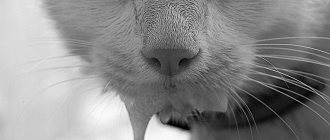
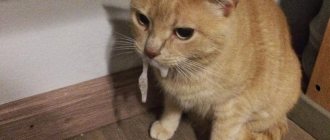
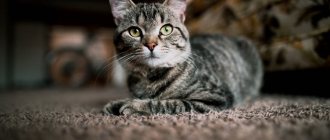
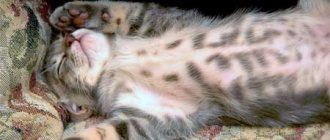
![Why is the cat drooling: [Find out the reason, What to do]](https://koriiza.ru/wp-content/uploads/pochemu-u-kota-tekut-slyuni-uznajte-prichinu-chto-delat-330x140.jpg)
